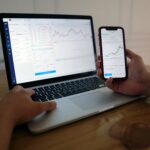Today, I will explain the following website. (AI-generated)
マツダのディーゼル スバルのクルマづくり 世界経済の行く先【復刻・徳大寺有恒「俺と疾れ!!」】(ベストカーWeb) – Yahoo!ニュース
Contents
Understanding the Forex Market: The Role of Currencies in Global Economy
The Forex market, also known as the foreign exchange market, is where currencies are traded 24 hours a day, facilitating global trade and investment. Each currency’s value reflects the economic health of its nation and impacts global commerce. For instance, the Japanese yen (JPY) and the US dollar (USD) are two of the most traded currencies, and their exchange rate is a crucial indicator of the economic dynamics between Japan and the United States.
Introduction to Forex Trading and Currency Pairs
Forex trading involves the simultaneous buying of one currency and selling of another, known as currency pairs. The most commonly traded pair is the USD/JPY, which represents the exchange rate between the US dollar and the Japanese yen. Traders aim to profit from fluctuations in exchange rates, which are influenced by factors such as interest rates, economic data, and geopolitical events.
The Impact of Economic Policies on Forex: A Case Study
Economic policies, such as Japan’s Abenomics, can significantly influence the Forex market. For example, changes in monetary policy can affect the value of the yen, altering its attractiveness to investors. The interplay between such policies and currency values can lead to opportunities for traders to capitalize on market movements.
How Currency Values Affect Global Trade and Investment
Currency values play a pivotal role in international trade by affecting the price competitiveness of a country’s exports and the cost of imports. Strong currencies can make exports less competitive, while weak currencies may boost exports but increase the cost of imported goods, impacting inflation and economic growth.
Strategies for Successful Forex Trading
Successful Forex trading requires a well-thought-out strategy, combining technical and fundamental analysis with sound risk management practices. By understanding market signals and economic indicators, traders can make informed decisions to manage their trades effectively.
Technical Analysis: Reading Charts and Market Signals
Technical analysis involves studying price charts and market data to identify patterns and trends. Traders use tools like moving averages, support and resistance levels, and various chart patterns to predict future price movements and make trading decisions.
Fundamental Analysis: Economic Indicators and Their Effects
Fundamental analysis focuses on economic indicators such as GDP growth, inflation rates, and employment figures to gauge a country’s economic health. These indicators can provide insights into future currency strength or weakness and are essential for long-term trading strategies.
Risk Management Techniques for Forex Traders
Effective risk management is crucial in Forex trading. Techniques such as setting stop-loss orders, managing trade sizes, and diversifying currency pairs can help traders minimize losses and protect their capital.
Future Trends in Forex Trading
The Forex market is constantly evolving, with emerging technologies and global economic shifts shaping its future. Staying informed about these trends is vital for traders looking to succeed in this dynamic environment.
The Role of Emerging Technologies in Forex Markets
Emerging technologies like blockchain and artificial intelligence are transforming the Forex market by increasing transparency, reducing costs, and providing advanced analytical tools for traders.
Predicting Currency Movements: Challenges and Tools
Predicting currency movements is challenging due to the complex interplay of multiple factors. However, traders use various tools, including economic calendars, news feeds, and algorithmic trading systems, to stay ahead of market movements.
Global Economic Outlook and Its Influence on Forex Trading
The global economic outlook can significantly impact Forex trading, as it shapes investor sentiment and risk appetite. Traders must monitor global economic trends and events to anticipate potential market shifts and adjust their strategies accordingly.













